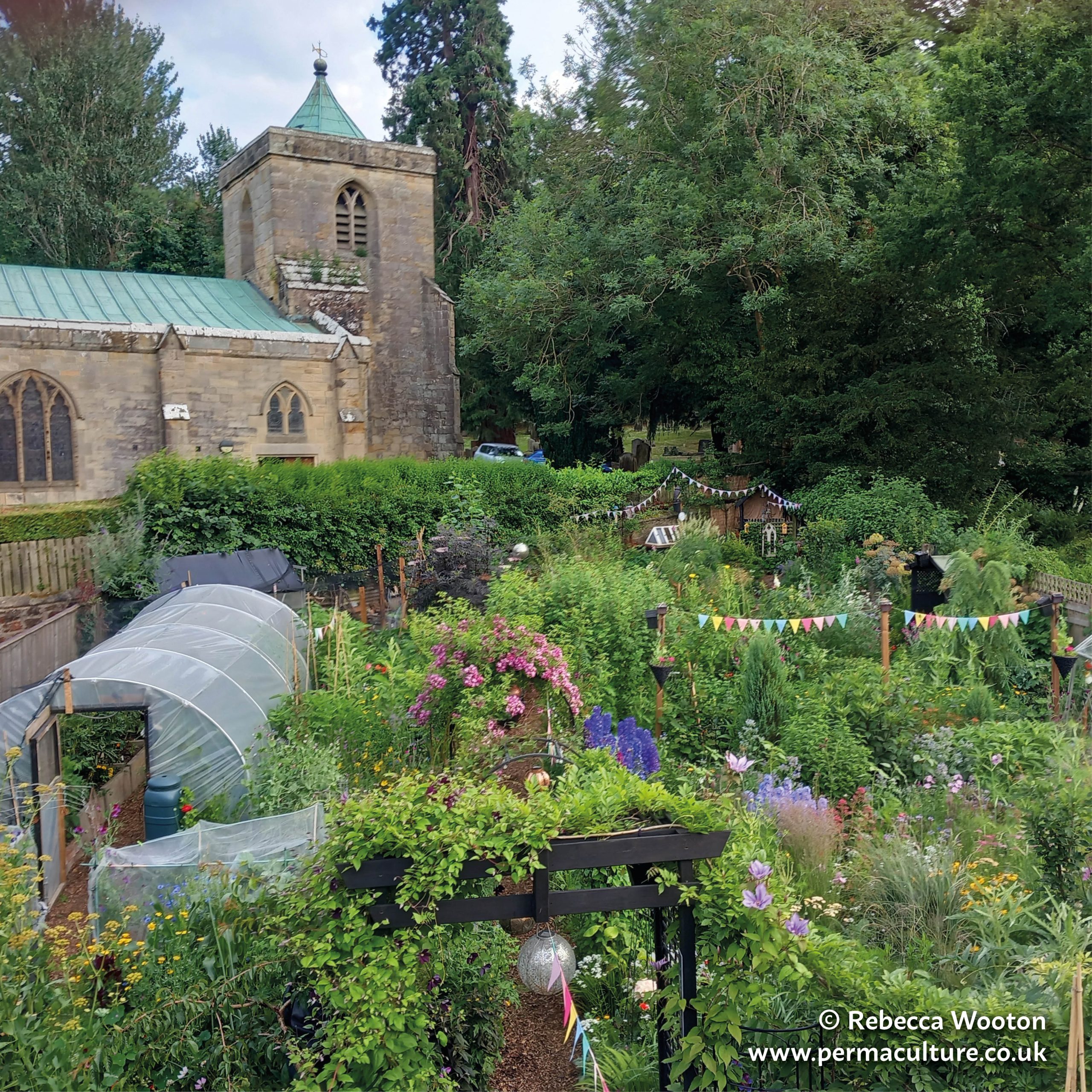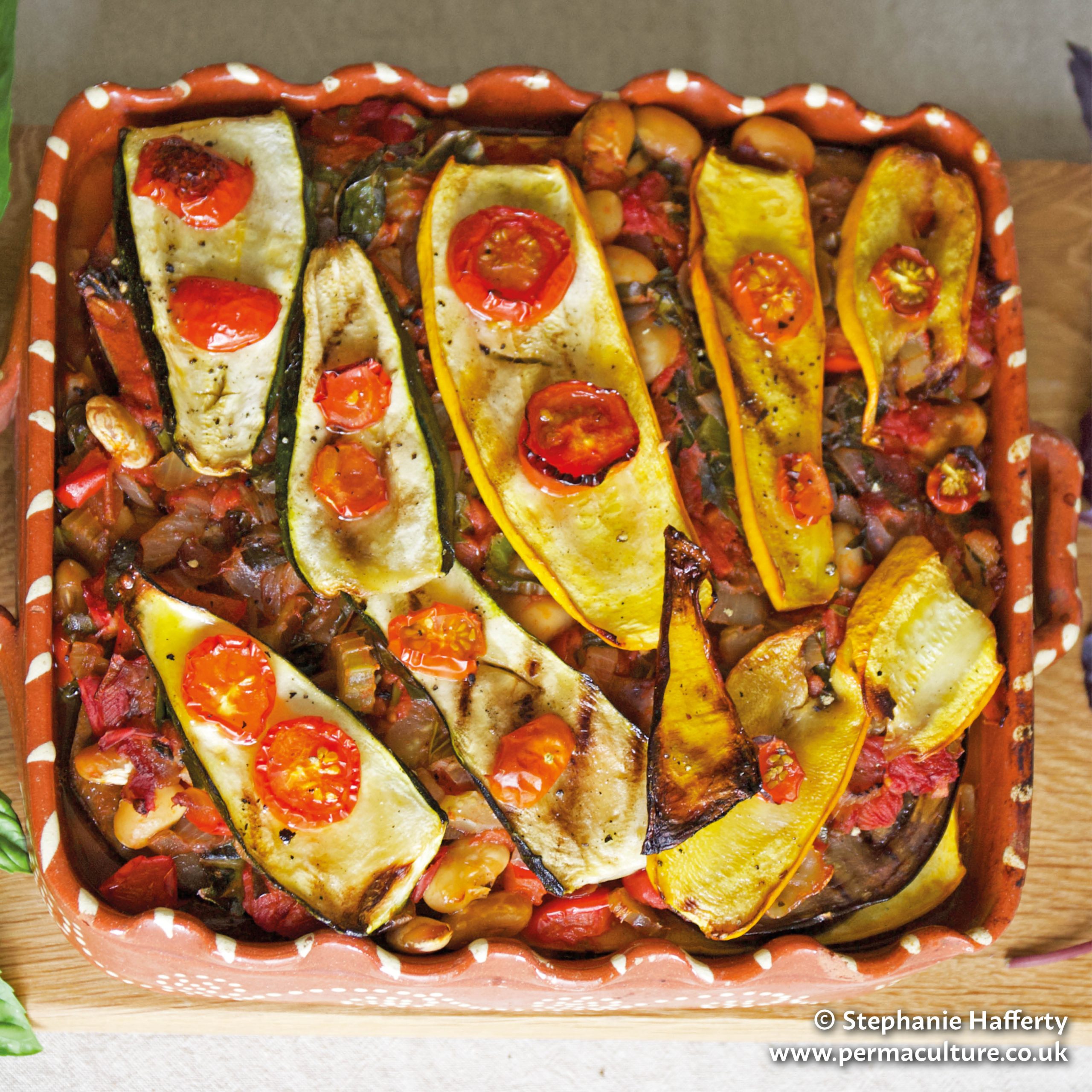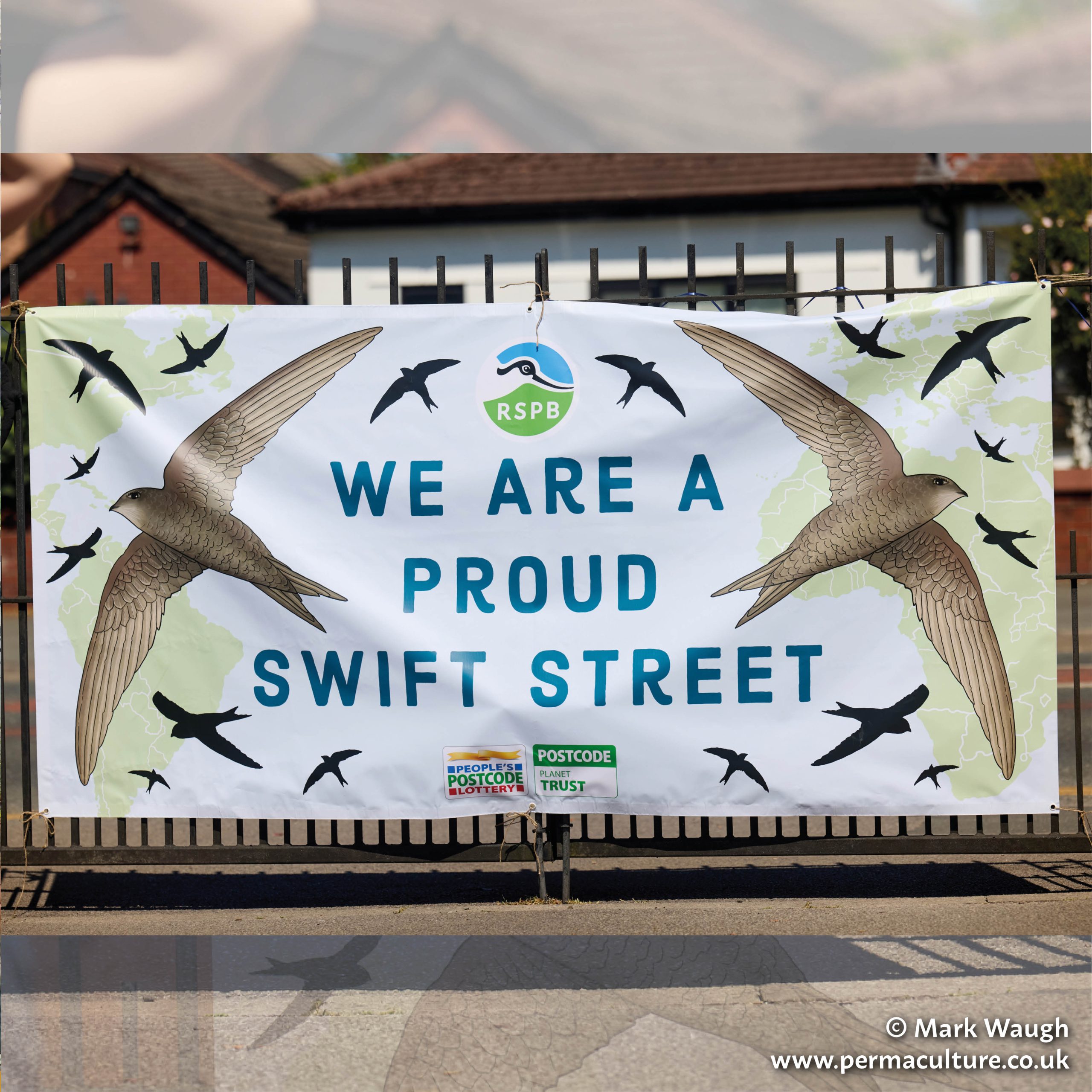Permaculture is primarily a thinking tool for designing low carbon, highly productive systems but its influence can be very pervasive! What can start as a journey towards living a more ecologically balanced lifestyle can go far deeper, even transforming our worldview and radically altering behaviour. This is the inspirational nature of permaculture, it is a means of connecting each of us more deeply to nature’s patterns and wisdom and of practically applying that understanding in our daily lives.
The discipline of permaculture design is based on observing what makes natural systems endure; establishing simple yet effective principles, and using them to mirror nature in whatever we choose to design. This can be gardens, farms, buildings, woodlands, communities, businesses, even towns and cities. Permaculture is essentially about creating beneficial relationships between individual elements and making sure energy is captured in, rather than lost from, a system. Its application is only as limited as our imaginations.
Permaculture is not just a green way of living or a guiding system of ethics, it is a way of designing using nature’s principles as a model; ‘bending’ them as much as possible to create fertile, self-reliant, productive landscapes and communities. This is what defines permaculture and it is uniquely effective and powerful. Where permaculture stands out from the crowd as a design system is in its capacity to integrate the intellect with ethics. It can teach us to ‘think’ with the heart and respond with the head. By combining pragmatism with philosophy, we can create a greater synthesis.
The three ethics are: Earth Care, People Care and Fair Shares. They are not exclusive to permaculture and were derived from the commonalities of many worldviews and beliefs. They are therefore shared by many throughout the world. What permaculture does is it makes them explicit within a design process; removing them from the realms of philosophy and practically rooting them in everybody’s lives. This transforms thinking into doing. It is their combined presence within a design that has a radical capacity for ecological and social transformation.
Imagine the originators of permaculture, Bill Mollison and David Holmgren, in the 1970s, seeing the devastating effects of a temperate European agriculture on the fragile soils of an ancient Antipodean landscape. Like the dust bowls of Oklahoma in the 1930s, an alien agriculture has the capacity to turn a delicately balanced ecology into desert. Their initial response was to design a permanent agriculture with tree crops and other perennials inhabiting all the niches, from the canopy to the ground cover and below. The soil is left untilled to establish its own robust micro-ecology. Key to this is that the land must be biodiverse and stable for future generations.
This ethic of Earth Care was the basis of permaculture design, but it was bound to grow and pervade all aspects of permaculture… How can we have an organic agriculture or horticulture and manage our landscapes to sustain themselves over generations on one hand, then consume goods from industries managed in ecologically damaging ways on the other? It’s pointless designing an organic garden and then buying a gas guzzling car or building a house from concrete and steel, when we can use local materials with less embodied energy.
The original vision of care for all living and non living things has grown to embrace a deep and comprehensive understanding of Earth Care that involves many decisions; from the clothes we wear and the goods we buy to the materials we use for DIY projects. Though we can’t all build our own house or grow all our own food, we can make choices about what and how we consume and conserve. Key to this is the understanding that up to one third of our ecological footprint is taken up by the food we buy, so even growing a small amount in a city allotment or container garden can make a difference. Permaculture is all about making a difference.
Fundamental to permaculture is the concept of Permanent Culture. How can we develop a permaculture if our people are expendable, uncared for, excluded? People Care asks that our basic needs for food, shelter, education, employment and healthy social relationships are met. Genuine People Care cannot be exclusive in a tribal sense; there can be no elites here: no plutocracies or oligarchies, all members of the community must be taken into account. It is a global ethic of Fairtrade and intelligent support amongst all people, both at home and abroad.
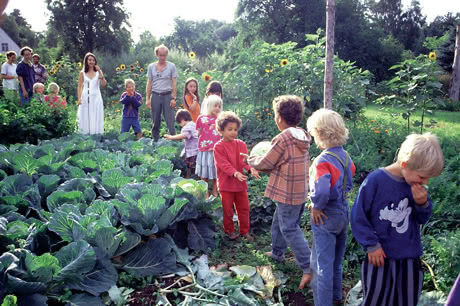
At the core of People Care is an understanding of the power of community. If we can change our lives as individuals and make incremental differences: think what we can do as a community! The permaculture designers who helped initiate Cuba’s post oil urban agriculture are a good example. They mobilised a whole country to become self-reliant. Ecovillages and cohousing communities who can significantly reduce their ecological footprint by sharing resources are other good examples.
In smaller ways; in our cities, towns and villages, we can all benefit from deepening community links. I may not have all the skills to grow all my food or eco-renovate my house, for example, but by developing good networks I can expand my capacity to live more sustainably and become more self-reliant. This is a decentralised, democratic vision of social transformation where grassroots initiatives like the Transition Towns movement can begin to plan for a low carbon ‘energy descent’ on a community level. There is no time to wait for central government to act, or eventually to react.
The last ethic synthesises the first two. It acknowledges that we only have one earth and we have to share it with all living things and future generations. There is no point in designing a sustainable family unit, community, or nation whilst others languish without clean water, clean air, food, shelter, meaningful employment, and social contact. Since the industrialised North uses the resources of at least three earths, and much of the global South languishes in poverty, Fair Shares is an acknowledgement of this terrible imbalance and a call to limit consumption (especially of natural resources) in the North.
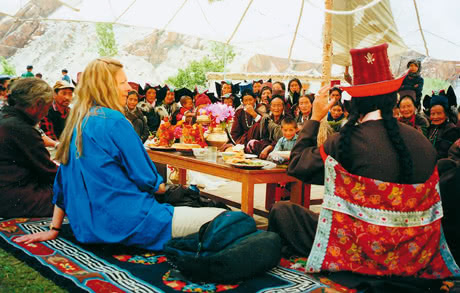
Permaculture fundamentally rejects the industrial growth model of the global North at the core of its ethics, and aspires to design fairer, more equitable systems that take into account the limits of the planet’s resources and the needs of all living beings. Whilst these permaculture ethics are more like moral values or codes of behaviour, they are not enough on their own.
We need the principles of permaculture to provide a set of universally applicable guidelines that can be used in designing sustainable systems. Otherwise, permaculture becomes merely a lifestyle choice within an existing unsustainable system. These principles can be inherent in any perma-culture design, in any climate, and on any scale. They have been derived from the thoughtful observation of nature, and from earlier work by ecologists, landscape designers and environmental science…
Maddy Harland is the co-founder and editor of Permaculture magazine and author of Fertile Edges – Regenerating the land, culture and hope.



